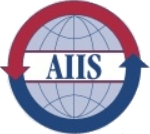Government/Policy

August 19, 2018
AIIS: Other Nations in Line for Higher Tariffs?
Written by Tim Triplett
Turkey may not be the last nation to face escalating tariffs from the Trump administration, according to the American Institute for International Steel’s (AIIS) interpretation of the presidential proclamation.
President Trump doubled the Section 232 duties on steel products from Turkey from 25 percent to 50 percent, effective Aug. 13. The proclamation behind the action indicates that capacity utilization rates in the domestic steel industry have not increased to the level recommended in the Commerce Department Section 232 report. It further notes that import levels have declined, but not to the extent necessary to result in the desired increase in domestic capacity utilization.
Although the original proclamation provided for identical duty rates for all covered countries, it was considered necessary to adjust the tariff for Turkey as “a significant step toward ensuring the viability of the domestic steel industry.”
Turkey is just one of 12 countries listed in the Commerce Department report that could be considered for higher duties should the president determine not to impose the same duty rates on all countries. The 12 countries listed for possible higher duty rates are Brazil, China, Costa Rica, Egypt, India, Malaysia, Republic of Korea, Russia, South Africa, Thailand, Turkey and Vietnam. Two of these (Brazil and Korea) are covered by quota agreements. The remaining nine countries, therefore, seem to be possible future targets for duty increases, said attorney Steven W. Baker, AIIS Customs Committee Chairman.
Although not stated in the proclamation, one justification given for the duty increase for Turkey is that the significant decline in the value of the Turkish lira against the U.S. dollar resulted in Turkish steel avoiding some of the duty effects felt by steel from countries with stronger currencies. How this may be applied to other countries with currencies declining against the dollar is unclear. Political controversies with Turkey [such as its arrest of an American pastor on terrorism charges] have also been cited as possibly having an effect on the determination. This has led to concerns about the possible use of the Section 232 duties for other than the claimed national security purposes, Baker noted.







